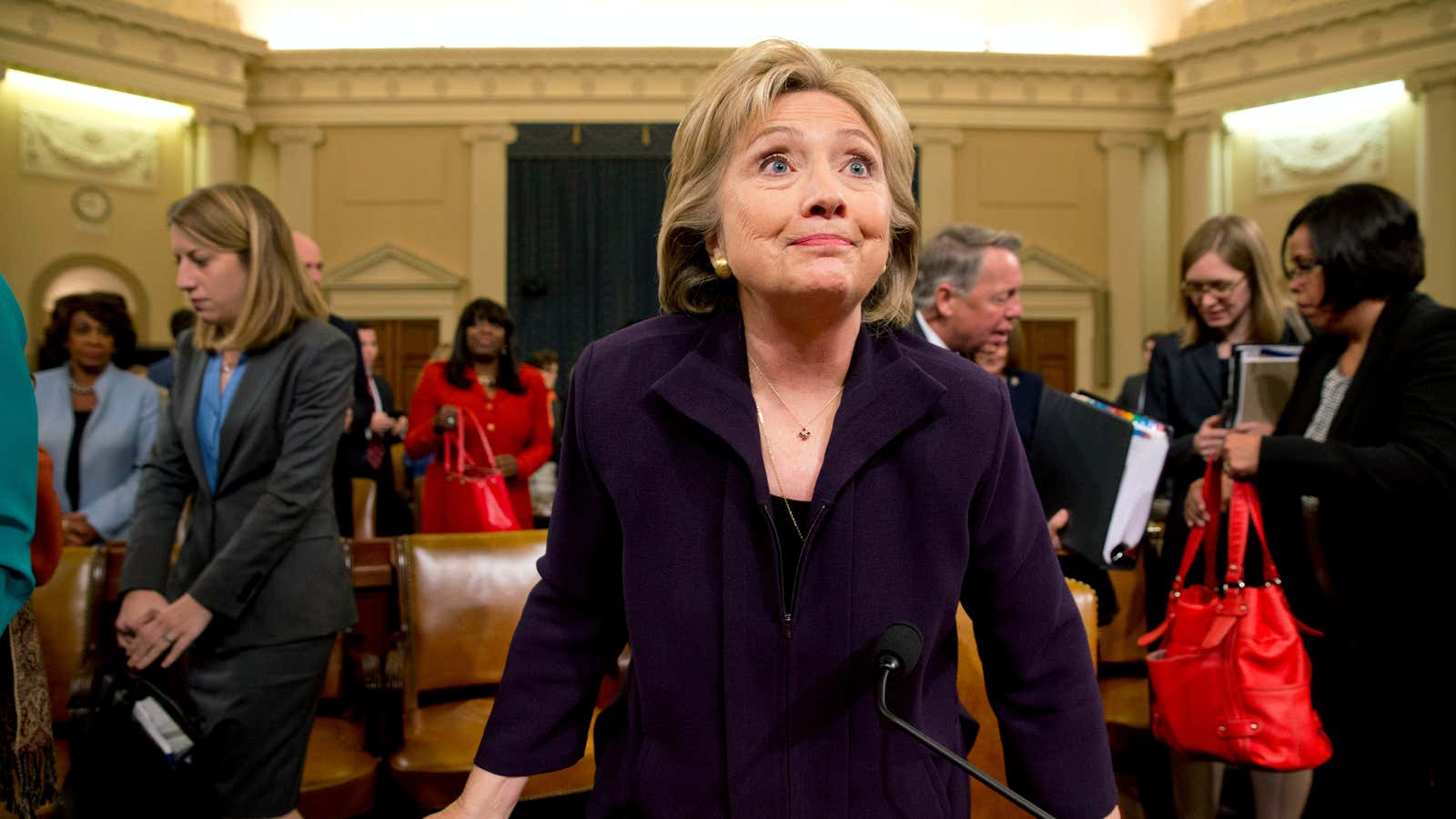By late in the evening, as it became clear that Hillary Clinton wouldn’t offer them the admissions they wanted, Republican lawmakers turned their time to spinning elaborate conspiracy theories, while their witness simply shook her head.
And when the 11-hour hearing of the House Select Committee on Benghazi adjourned, chairman Trey Gowdy couldn’t tell reporters that any new information had been added to the record of the events that left four Americans dead in Libya in 2012.
The reporters already knew what they had gotten: A slew of animated gifs showcasing Clinton’s reactions to the interrogation—alternating boredom and amusement.
It has to be said: Whether the committee is a partisan project charged with destroying Clinton’s presidential hopes, or a truth-seeking crusade to uncover her as-yet-undocumented negligence in the Benghazi attacks, it accomplished neither. Despite all the failings of previous investigations trumpeted by Gowdy, there were no new facts to paint Clinton as derelict in her duty.
Democratic members complained that the committee had not interviewed representatives of other departments. At the very least, it might have given the committee some new information to put before Clinton.
Critics of Clinton’s secretive ways will see her sometimes evasive responses to questions about her use of a private email account as a minor victory—and there was a moment where serious revelations could have undone her campaign. Instead, her stoic performance before the committee appears likely to make her a more sympathetic figure, and allay any questions about her age.
What’s left, really, is the tack that some Republican members almost emphasized, particularly Illinois Rep. Pete Roskam. He made an effort to paint Clinton as the architect of the Libya conflict and cajole her into taking credit for putting it into place. Overthrowing autocrat Muammar Gaddafi without supporting a transitional government has left the country in chaos. Clinton will have to own that choice in the future.
But she was not asked about why the US was in Libya or how it got there, or what the plans were even generally for post-conflict reconstruction—surely relevant to the events in Benghazi. Roskam’s questions led to an accusation that Clinton was worried over-much about publicity, as if she wasn’t a politician. Perhaps he avoided the grander policy implications because many Republicans are eager to intervene similarly in Syria, a kind of Libya 2.0.
Instead, observers were treated to obsessive discussions of Sidney Blumenthal, the Clinton hanger-on who was denied a job in the State Department by the Obama administration, and his emails to his former employer. Hours of questioning amounted to, “Why was Blumenthal emailing you so much?”
To which Clinton replied, doggedly, that she did not do the bulk of her work on email. And that, so far, is that.
